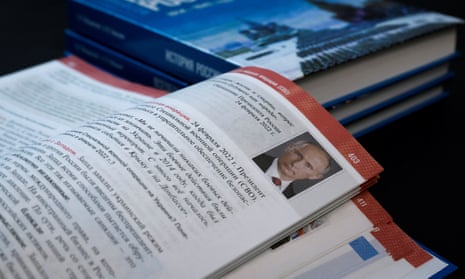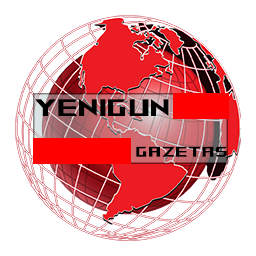Russia risks dividing its forces to stop Ukrainian breakthrough, says UK MoD
Russia risks splitting its troops as it seeks to prevent a Ukrainian breakthrough in Ukraine’s south, the UK Ministry of Defence says.
In its latest intelligence update, the ministry said Ukrainian forces continued to take offensive action on the Orikhiv axis in southern Ukraine, with units reaching the first Russian main defensive line.
“Russian forces, primarily composed of the 58th combined arms army and Russian airborne forces elements, seek to halt the Ukrainian counteroffensive whilst maintaining their own offensive on the northern axis around Kupiansk,” said the ministry’s update, posted on X/Twitter.
The ministry said Russian forces were probably seeking to distract Ukraine from its counteroffensive, forcing it to divide its forces between Orikhiv and Kupiansk.
Given that Russia has made modest gains near Kupiansk since the Ukrainian counteroffensive began in June, they are highly likely seeking to capitalise on these by continuing to resource the axis.
However, Russia risks dividing its forces as it seeks to prevent a Ukrainian breakthrough.
Key events
Ukraine’s minister of internal affairs, Anton Gerashchenko, has tweeted a photo of a Russian strike in Kramatorsk.
Instead of a thousand words.
A Russian rocket hit Kramatorsk today. Very close to a residential building.
Terrorist state continues terrorizing civilians.
📷: Radio Svoboda pic.twitter.com/B9CQUIB6a2
— Anton Gerashchenko (@Gerashchenko_en) September 2, 2023
Ukraine’s ministry of defence has tweeted footage of Ukraine’s ambassador to Australia, Vasyl Myroshnychenko, testing the Slinger anti-drone system.
Ukraine’s Ambassador to Australia, Vasyl Myroshnychenko @AmbVasyl, personally struck two fixed targets. He was testing the Slinger anti-drone system, manufactured by Australian company Electro Optic Systems and based on the 30mm M230LF cannon and the 7.62mm MAG58 machine gun. pic.twitter.com/NeEWufJpfV
— Defense of Ukraine (@DefenceU) September 2, 2023
It has also posted a photograph of the remnants of a KAB-500 aviation bomb that Russia used.
The remnants of a KAB-500 aviation bomb that russian terrorists drop on frontline villages and cities. They maim and kill peaceful residents every day. Fortunately, this one did not explode completely.
📷 32nd Mechanized Brigade pic.twitter.com/JN92I2cUG7
— Defense of Ukraine (@DefenceU) September 2, 2023
Ukraine has called the Nobel Foundation’s decision to bar Russia and Belarus from its Stockholm prize ceremony a restoration of justice.
The foundation cancelled an invitation to the two nations and Iran after widespread criticism.
“Thank you to everyone who demanded that justice be restored,” said Ukrainian foreign ministry spokesperson Oleg Nikolenko.
“We are convinced that a similar decision should be made regarding the Russian and Belarusian ambassadors in Oslo,” referring to the peace prize ceremony that takes place in Norway after the event in Sweden.
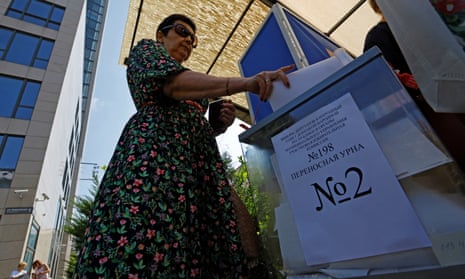
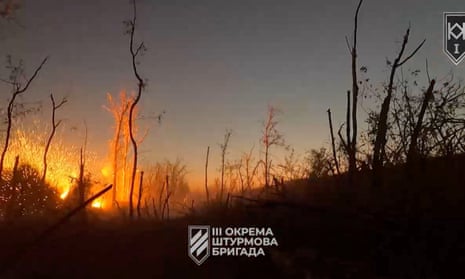
Summary
-
The Nobel Foundation has announced it is reversing its decision to invite ambassadors from Russia and Belarus to this year’s Nobel award ceremony in Stockholm, after the move sparked anger.
-
Ukrainian forces are “on the move”, the president, Volodymyr Zelenskiy, has said, as the US acknowledged the “notable progress” of the counteroffensive over the past few days.
-
Russia risks splitting its troops as it seeks to prevent a Ukrainian breakthrough in Ukraine’s south, the UK Ministry of Defence said. It said Ukrainian forces continued to take offensive action on the Orikhiv axis in southern Ukraine, with units reaching the first Russian main defensive line.
-
The Russian president, Vladimir Putin, is to host the Turkish leader, Recep Tayyip Erdoğan, for talks on Monday, the Kremlin announced yesterday. It comes just over six weeks after Moscow broke off a deal brokered by Ankara and the UN that allowed Ukrainian grain to reach world markets.
-
Russia’s defence ministry said its forces this morning destroyed an unmanned Ukrainian boat being used in an attempt to attack the bridge linking the Crimean peninsula to the Russian mainland. The vessel had been “spotted and destroyed in time off the Black Sea coast”.
-
Elections are under way in Russian-controlled provinces of Ukraine as part of a move to cement Moscow’s authorities in its “new territories” despite the ongoing conflict. Russia does not fully control any of the four regions where the votes are being held – Donetsk, Luhansk, Zaporizhzhia and Kherson.
-
The largest refugee centre established to home Ukrainians fleeing the Russian invasion has been closed by Poland after it said the sanctuary was no longer required, since most had now found homes elsewhere.
Ukrainian forces are “on the move”, the president, Volodymyr Zelenskiy, has said, as the US acknowledged the “notable progress” of the counteroffensive over the past few days.
The defence ministry cited a statement from Zelenskiy’s Telegram channel:
Ukraine’s military retook the southern village of Robotyne this week before its troops moved eastwards toward Verbove, where several lines of Russian defences meet.
Ukraine’s human rights ombudsman, Dmytro Lubinets, has claimed that students in Crimea are set to receive military training courses under Russian plans to militarise the annexed region.
In a statement on Telegram, Lubinets said:
From today, Crimean schoolchildren from grades five to nine will attend extracurricular classes – ‘basics of military training’. And for students of the 10th and 11th grades, it was included in the OBZ program.
For this purpose, 25 Crimean teachers have already completed courses of military training, tactical medicine, to assemble and disassemble automatic weapons, organise life in a field camp, handle personal protective equipment and radiological, chemical and biological protection.
The head of a Russian government-funded thinktank has been removed from his post after publishing an article about Russian propaganda during the war on Ukraine.
Valery Garbuzov, the head of the United States and Canada Institute, told Tass:
Yes, yesterday an order was signed to terminate the contract with me. The reason as such is not indicated there, there is an article of the employment contract that is at the initiative of the founder, it is formulated like this.
The BBC reports that Russian newspaper Nezavisimaya Gazeta ran a column by Garbuzov last week. He claimed that there is an “atmosphere of pseudo-patriotic madness” and conditions of the “creeping restoration of Stalinism”.
Less controversially, in Russia at least, he added: “US dominance is an objective, permanent factor that began the process of its formation at the beginning of the 20th century and still exists.” Before stating: “Russia is a former empire, the heir to the Soviet superpower, experiencing an extremely painful syndrome of suddenly lost imperial greatness.”
He said that Russian people “with amazing ease, naively and thoughtlessly perceives the theses of total state propaganda”.
Iran’s news agencies are reporting that a Russian-made Yak-130 combat trainer aircraft is in the country and has joined the air force.
The report by Isna said the advanced combat trainer aircraft is able to meet the training needs of pilots learning to fly fourth-generation fighters.
In April, Iran announced that it had finalised a deal to buy Su-35 fighter jets from Russia. Iran and Russia have a close relationship, especially in military equipment, reports AP.
Iranian drones have been a key element of Russia’s continued war on Ukraine. Tehran has offered a series of contradictory explanations about the drones, first denying it supplied them to Moscow and then claiming it sold them only before the war began. However, the volume of drones used in the conflict shows a steady supply by Iran of the bomb-carrying weapons.
In June, the White House said Iran is providing Russia with materials to build a drone manufacturing plant east of Moscow as the Kremlin looks to lock in a steady supply of weaponry.
France has been assisting Ukraine in a fresh diplomatic effort to gather the support of more countries in the global south.
The Financial Times reports there have been concerns that Russia emerged from the Brics summit in South Africa last week strengthened since it was announced that next year’s meeting would be held in Kazan, Russia.
Ukraine’s foreign minister, Dmytro Kuleba, was in Paris this week and claimed his country had offered countries the option of choosing which aspects of President Volodymyr Zelenskiy’s 10-point peace plan they could support.
This flexible method allows us to have a bigger coalition … Much work remains to be done and more diplomatic contacts will be needed. We will use the next session of the United Nations to organise more communication with countries in Africa, Asia and South America.
Some emerging countries such as India and Brazil have not condemned Russia over the war in Ukraine since they maintain that the conflict does not concern them.
Olexiy Haran, professor of comparative politics at Kyiv-Mohyla Academy university, told the FT that Ukrainian diplomatic outreach with the global south was “becoming more active, more professional and taking into account greater specificity” of the countries it sought to engage.
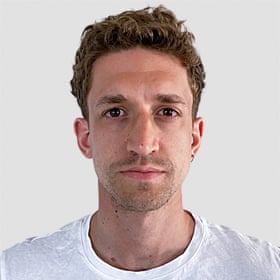
Pjotr Sauer
The release of Russia’s first feature-length film about its invasion of Ukraine that premiered across the country on 17 August comes on the back of plans announced by the Russian authorities to boost the production of movies glorifying Moscow’s actions in Ukraine.
But The Witness is a box-office flop. Set to a budget of 200 million roubles (£1.5m), it has grossed less than 14 million roubles (£110,000) in its first two weeks, with viewers across the country reporting empty cinema halls.
In two hours of screen time, the film covers a wide spectrum of falsehoods that the Kremlin has used to justify its invasion of Ukraine. On the eve of the invasion, Vladimir Putin said Moscow had to “denazify” its neighbour, the lie that Ukraine was infiltrated by dangerous “Nazis”.
At one point, a Ukrainian commander is seen walking around with a copy of Mein Kampf, while other Ukrainian soldiers pledge their allegiance to Adolf Hitler. As a witness to these unspeakable horrors, a fictional Belgian violinist, Daniel Cohen, sets out to tell the world the “truth” about the conflict.
A new Russian high school text book has sought to justify its war of aggression in Ukraine, as students returned to classes following the summer break.
The New York Times reports that a revised textbook alleges that Ukraine is an “ultranationalist state” where “opposition is forbidden,” and that the US is “the main beneficiary of the Ukrainian conflict.”
The rewritten version of “The History of Russia, 1945 to the beginning of the 21st Century,” a textbook for 16- and 17-year-old students, devotes almost 30 pages to the war. The NYT said the authors framed it as a response to “an increasingly aggressive West” that wanted to use Ukraine as a “battering ram” to destroy Russia.
